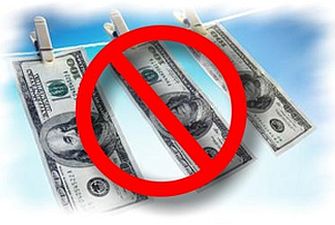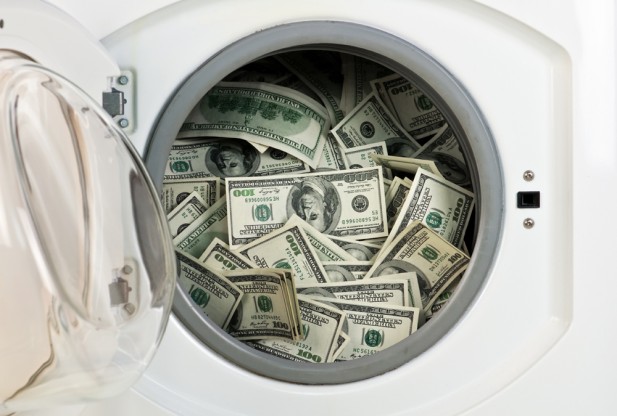Tijuana, Mexico — One of the oldest and largest businesses in Baja California, the Calimax supermarket chain got some unpleasant news last month: the company’s US bank no longer wants its business.
This presents a problem for Calimax, where many customers pay in dollars and the products on the shelves often have been imported from the United States. The family-owned company is one of a growing number of Tijuana businesses that face the closure of their US accounts as banks come under pressure to adopt stricter anti-money-laundering measures.
"They told us to come and pick up our money," said Federico Díaz, chief financial officer for Calimax, which has 109 stores in Baja California and Sonora, with some 6,600 employees.
Word of these account cancellations has spread alarm in Tijuana’s business community. Dollars have long been a common currency here, used to pay for everything from rents to medical services to restaurant tabs. Rare is the business in Tijuana that refuses dollars.
"Where is all this cash supposed to go? Are we supposed to put it inside a shoe box under the bed?" asked José Manuel Ripa, vice president of finance for the Tijuana Chamber of Commerce, or CANACO. "We’re seeing established companies that are having problems. This isn’t good for either side of the border."
The US account cancellations have put some Tijuana businesses in a bind, as dollar deposits in Mexican banks were restricted in 2010, and until recently have been limited to $14,000 per month for businesses and $7,000 for individuals. Though President Enrique Peña Nieto announced the lifting of the restrictions in September, the new policy apparently has yet to take effect at the border.
While not everyone has been touched by the measure, the closures by several major US banks have been happening for the past two or three years, and appear to be growing.
At the Tijuana offices of Deloitte, an international professional services firm, partner Mario Díaz Carrasco knows of a half-dozen clients who have been given notice. "I can tell you it’s our big important clients," Díaz said.
 |
The closures come as US banks have been under increased pressure to scrutinize their dollar accounts — or face steep fines if found in violation of government reporting requirements. In 2012, the British bank HSBC paid a record $1.9 billion settlement after admitting to US authorities that it failed to maintain an effective money-laundering program, thus allowing Mexican drug traffickers to launder large sums through their bank.
The US banks "are scared of being fined," said José Larroque, a partner in the Tijuana office of the international law firm Baker & McKenzie who has seen clients in real estate and the maquiladora industry find themselves forced to move their funds. For the banks, "it’s a huge reporting effort that they have to go through, and they’re weighing the differential between the amount of work they have to go through versus how much those accounts work for them," he said.
Enrique Hernández, an international tax partner at Procopio law firm in San Diego said the banks "sometimes assess that being in the international market is too risky for them. ... It’s something we’ve been seeing for several years now."
In Baja California, where dollars are a common currency, such policies reverberate more strongly than in Mexico’s interior, said Mario Escobedo Carignan, a longtime business leader in Tijuana.
The intensity of economic exchange between Tijuana and San Diego makes businesses particularly sensitive to the issue, and even more so as the holiday season approaches, he said: "Mexican-Americans are coming down with dollars. We aren’t going to know what to do with them."
In 2010, Tijuana’s business community erupted in protest when Mexico’s federal government placed limits on how much US cash could be deposited into Mexican banks. The aim was to limit the financial resources available to drug trafficking organizations.
With Mexico’s crackdown, US authorities noticed a new trend: an increase in the flow of drug dollars from Mexico to the United States, funds that have traditionally flowed largely in the opposite direction.
Michael Carney, a deputy agent in charge for US Immigration and Customs Enforcement in San Diego, said money exchange houses in Mexican border cities would typically consolidate the cash and ship it through armored vehicles, making it difficult to trace.
"The armored car service would report the cash as belonging to the casas de cambio (money exchange houses,)" Carney said. "It was difficult to impossible to verify the true owners of the cash."
Suspicions were especially raised at the Otay Mesa Port of Entry. An Associated Press analysis found that declared cash at the port spiked from $10.6 million in 2009 to $1.17 billion in 2011 and $1.78 billion last year. Last August, the US Treasury Department began requiring enhanced cash reporting by armored car services at the Otay Mesa and San Ysidro ports of entry.
Some relief was expected in Mexico after President Enrique Peña Nieto announced in September that the limit on dollar deposits in Mexican banks would be lifted for anyone who passes a certification process. But at a meeting at CANACO last week, business leaders said many Tijuana banks have yet to lift the limits.
 |
Marco Antonio Blázquez, a senator from Baja California who attended the meeting, suggested that "this is a period of adjustment. We need to reach the institutions and correct officials to apply pressure" to lift the restrictions.
Mexican businesses say they still need American bank accounts - if only for the convenience of paying US vendors directly and avoiding costly cross-border transaction fees.
Many are loath to publicly admit a major US bank has rejected them. CANACO did not provide a figure for how many members were affected, but leaders said Chase Bank is known to have closed a good number of accounts.
Suzanne Ryan, a spokeswoman for Chase, would not discuss specifics, but said "we regularly review cash transactions for suspicious activity. If detected we may close the accounts." She added: "You can’t assume because we close an account it has to do with anti-money laundering measures."
U-T San Diego was able to see one closure notice, both with the bank’s name and the business blacked out. "We regret to inform you that we can no longer continue our relationship with your firm," it stated, suggesting that the business "move its banking relationship to another banking institution."
The letter explained that the bank "has recently increased its account monitoring requirements," for commercial customers, and "undertaken a review of our current deposit account relationships to determine whether the size and type of the relationship sufficiently warrants the increased amount of oversight required."
Gilberto Leyva, CANACO’s president, said US banks twice have asked him to withdraw his money. He is the owner of a business in Tijuana that purchases used vehicles at auctions in the United States and sells them in Mexico.
Union Bank was the first, and so he transferred the funds to Chase Bank, but then was canceled there as well, he said.
"It’s all because I used a lot of cash. I said, ‘Look into my background since the moment I was born, and you’ll see that there is nothing illicit, it’s all legal."
But Leyva has now found a place to put his money: First Bank, a family-owned bank based in Missouri with four branches in San Diego County.
Chula Vista-based Vibra Bank also has been opening its doors to Mexicans turned away from the larger institutions. "I can tell you we have been beneficiary of some very nice accounts as a result of it," said Frank Mercardante, the bank’s president and CEO. The bank has welcomed a dozen of these customers over the past six months, he said. "They’re good solid citizens. We think there’s an opportunity for us provided we do our proper diligence from a compliance standpoint."
Original Story


